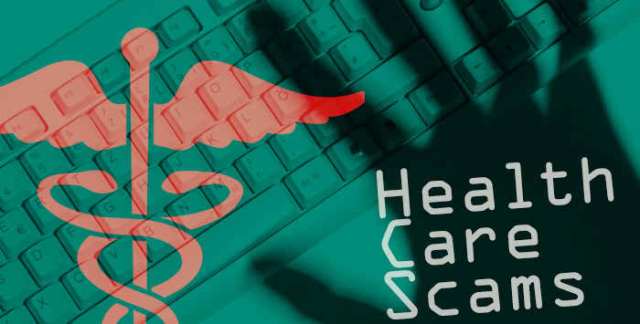https://pilotonline.com/news/government/local/part-owner-of-proposed-chesapeake-eye-surgery-center-faces-allegations/article_dac450e3-d7b1-5e1d-87a1-54a39a5e8ddf.html

A North Carolina-based physician and part owner of a proposed medical center in southern Chesapeake is facing allegations of involvement in a kickback scheme.
The U.S. Attorney’s Office in Minnesota is pursuing a civil action against Jitendra Swarup, an ophthalmologist at Albemarle Eye Center in Elizabeth City, N.C., a spokeswoman said Friday. She said the government’s complaint would be filed by a court-mandated mid-November deadline.
Swarup was among more than a dozen physicians and four companies listed as defendants in a 2015 complaint lodged by a “whistleblower” and former executive of Sightpath Medical. The lawsuit alleges physicians were bribed through travel, entertainment and “sham consultancy agreements” to use Sightpath products and services.
The company and its former CEO, James Tiffany, settled with the government and the whistleblower recently for $12 million, according to the U.S. Attorney’s Office in Minnesota and court documents. The 2015 complaint, which was originally filed in 2013, claimed, among other things, that Sightpath paid Swarup consulting fees to induce referrals.
“We intend to vigorously defend Dr. Swarup, and we believe he will be completely exonerated,” Swarup’s lawyer, Marc Raspanti, said Friday. Raspanti said no criminal charges have been filed, and there is no criminal investigation. The spokeswoman in Minnesota wouldn’t comment on the existence of a criminal investigation, but to date, there has not been a criminal charge issued, she said.
Raspanti, a Philadelphia-based attorney, said he is “cautiously optimistic” the government can be persuaded to “spend their time elsewhere.”
Swarup and Chesapeake ophthalmologist Paul Griffey want to build an outpatient surgery center on about 1.5 vacant acres off Carmichael Way in Edinburgh. Twelve surgeons are committed to what’s being called the Center for Visual Surgical Excellence, Griffey told council members last week. Services would include cataract, retinal and other surgeries, city planning documents say.
According to a certificate of public need issued for the center last month by the Virginia Department of Health, the capital costs of the project are $3.7 million, with financing costs of $1.4 million. It’s scheduled for completion by October 2018. A condition of the state’s certificate is that the center must provide “an appropriate level” of charity services, according to department documents.
City staff and the Planning Commission have recommended approval of a conditional-use permit. City Attorney Jan Proctor said Friday the City Council is aware of the civil lawsuit, but it is not a factor in the land-use issue.
“Dr. Swarup vigorously denies the allegations, and they provide no basis to deny the (permit) whether or not true,” Grady Palmer, the attorney for the project, wrote in an email to council members Sept. 1. The council will consider the proposal tonight.
Swarup, a Suffolk resident, told council members last week that he’s been practicing for 20 years in northeastern North Carolina, where Albemarle Eye Center has five offices, including two on the Outer Banks. He is licensed in Virginia and North Carolina, according to state medical board websites, and is affiliated with hospitals in both states.
Settlement documents say Sightpath Medical supplies medical facilities with products that ophthalmologists use for surgeries in ambulatory surgical centers and hospitals.
Federal payers, including Medicare, reimburse the facilities and the physicians, documents said. Sightpath offered and paid illegal remuneration to physicians to promote the use of its products and services, which resulted in the submission of false claims, the settlement documents said.
The 2015 complaint contends that Swarup began receiving $8,000 a month around 2002 as a consultant for Sightpath, but that he “does not perform commercially reasonable services for these payments.”
Instead, the payments were made to gain Swarup’s business in North Carolina and induce referrals, the documents say. Swarup sought these payments, which continued until at least 2008, as a “quid pro quo for arranging for hospital administrations to utilize Sightpath’s services and equipment,” court documents say.
Swarup was also a guest of a company executive on at least one “luxury” fishing trip to Budd’s Gunisao Lake Lodge in Manitoba, Canada, in 2006, according to the 2015 complaint.
Raspanti said Swarup was a consultant for Sightpath from 2002 or 2003 to late 2014, but Sightpath is still contracted with hospitals in which Swarup operates. He said most of those facilities had contracts with the medical service provider before Swarup came to North Carolina to practice.
Swarup made roughly $80,000 a year in consulting fees with Sightpath, Raspanti said, which included discussions on ways to improve products and services and the training of technicians who assisted Swarup with his procedures.
“The contract, as far as we’re concerned, was legal and honored for many years by both sides,” Raspanti said. It was neither unusual nor inappropriate, he said, and contracts like it exist in other medical disciplines.
There were “half a dozen trips” over the course of Swarup’s contract with Sightpath, Raspanti said. Swarup paid for some and contributed to others, and most were requested by Sightpath executives and were part of Swarup’s contractual obligation. Executives also visited Swarup at his North Carolina home, Raspanti said.
“Just because you see an allegation doesn’t mean it’s true,” Raspanti said, noting there have been “no allegations of inappropriate surgeries, no allegations of lack of medical necessity, no allegations of bad medical outcomes.” He said Swarup has not been excluded from Medicaid or Medicare or any private insurance company.
Raspanti, a health care lawyer for many years, said his client – the only local doctor named in the 2015 complaint – has been targeted because he is an active and prolific surgeon. Raspanti said he has told Swarup to do whatever he needs to do to run his practice, including his pursuit of a new venture.
“I have told him to move full speed ahead on it,” Raspanti said.











